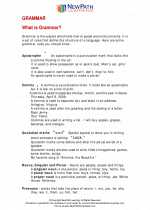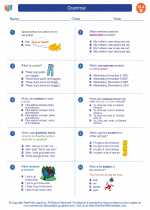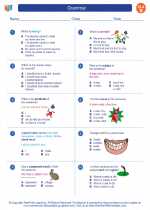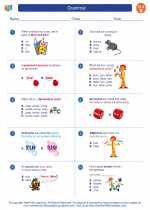Subordinating Conjunctions
Subordinating conjunctions are words that join a dependent clause to an independent clause. They indicate the relationship between the dependent clause and the independent clause, such as cause and effect, time, condition, and contrast.
Examples of Subordinating Conjunctions:
- after
- although
- because
- before
- if
- since
- until
- when
- while
Usage of Subordinating Conjunctions:
Subordinating conjunctions are used to introduce dependent clauses, which cannot stand alone as complete sentences. Here are some examples:
- I will go to the park after I finish my homework.
- She passed the test because she studied hard.
- He will play outside if it stops raining.
Study Guide:
When using subordinating conjunctions, it's important to remember that the dependent clause cannot stand alone as a complete sentence. The subordinating conjunction is used to connect the dependent clause to the independent clause, and the dependent clause usually provides additional information about the independent clause.
Here are some tips for using subordinating conjunctions:
- Identify the subordinating conjunction in the sentence.
- Determine whether the clause following the subordinating conjunction is dependent and cannot stand alone.
- Understand the relationship between the dependent clause and the independent clause, such as cause and effect, time, condition, or contrast.
- Practice using subordinating conjunctions in sentences to demonstrate understanding of their usage.
Remember that subordinating conjunctions are important for creating complex sentences and adding variety to writing. Understanding how to use them will enhance your ability to convey different types of relationships between clauses in your writing.
[Subordinating Conjunctions] Related Worksheets and Study Guides:
.◂English Language Arts Worksheets and Study Guides Second Grade. Grammar

 Worksheet/Answer key
Worksheet/Answer key
 Worksheet/Answer key
Worksheet/Answer key
 Worksheet/Answer key
Worksheet/Answer key
